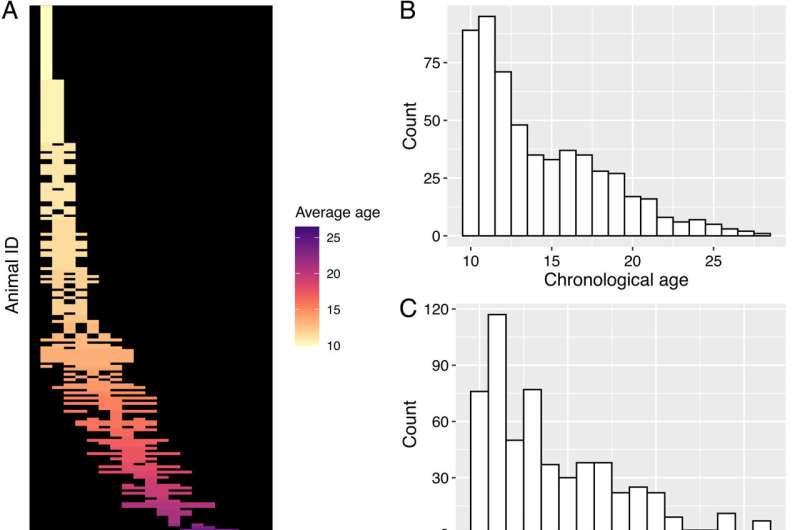Female monkeys 'actively reduce' social network as they age

Female rhesus macaques actively reduce their social networks and prioritize friends and family as they get older, new research shows.
Having fewer friends in later life has been seen as harmful, including among humans. But the new study shows female macaques become increasingly selective, focusing more on relatives and long-standing friendships.
The results show females aren't shunned in later life—the changes are driven by the females themselves.
The research—by the University of Exeter, Arizona State University, New York University and the University of Pennsylvania—was carried out on Cayo Santiago, also known as Monkey Island, off Puerto Rico.
"This pattern of narrowing social networks with age is common in humans," said Professor Lauren Brent, from Exeter's Center for Research in Animal Behavior.
"Our study offers the most conclusive evidence to date that social selectivity is not unique to humans, and therefore might have deeper evolutionary underpinnings."
The study used eight years of data on more than 200 macaques, seeing how the social lives of each individual changed.
By ruling out other explanations such as the death of partners, the researchers found clear evidence of social selectivity by females.
"There are many possible reasons why macaques become more socially selective with age," said Dr. Erin Siracusa, also from the University of Exeter.
"For example, the benefits of social interactions might change with time. Young macaques might benefit from a wide social group that can help them explore and find potential mates.
"For older macaques, it might be easier and safer—in terms of everything from conflict to disease transmission—to stick with family and existing friends.
"New relationships also require more mental effort, so while we see no decline in time spent socializing, older macaques might save mental energy by shrinking their network."
The paper, published in the journal Proceedings of the National Academy of Sciences, is titled "Within-individual changes reveal increasing social selectivity with age in rhesus macaques."
More information: Erin R. Siracusa et al, Within-individual changes reveal increasing social selectivity with age in rhesus macaques, Proceedings of the National Academy of Sciences (2022). DOI: 10.1073/pnas.2209180119
Journal information: Proceedings of the National Academy of Sciences
Provided by University of Exeter





















